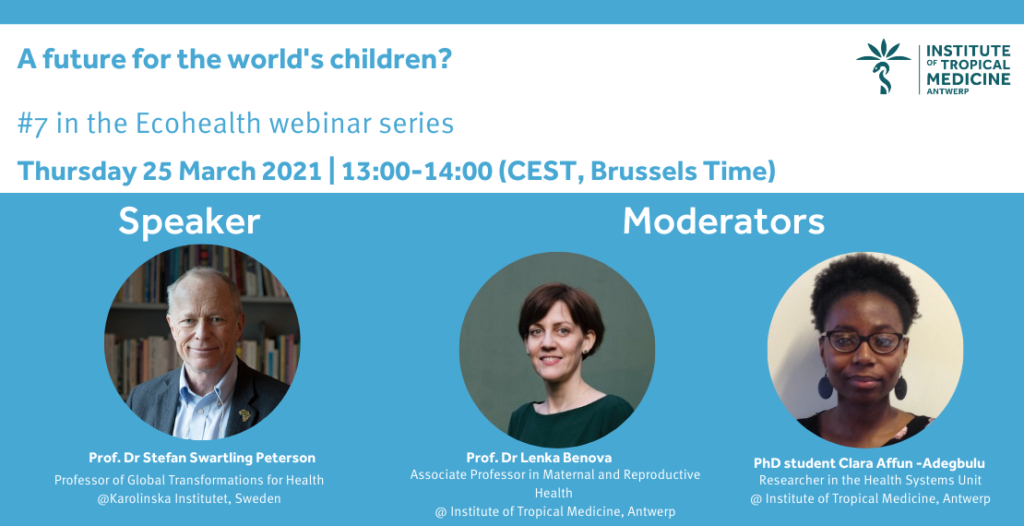
2020 will be remembered as the year when a ‘simple’ virus affected all spheres of life of very many people, with disastrous consequences all over the world. In essence, the COVID-19 pandemic is an example of how systemic approaches to health and health problems are central not only to health research, but also to policymaking and the development of effective and equitable policies for the challenges we are currently facing in our societies.
ITM’s Ecohealth group is organising a seminar series in which speakers will discuss current challenges such as climate change, globalisation, urbanisation and emerging diseases, and illustrate how systems approaches can be applied to better understand the issues, analyse their root causes and inform solutions.
The seminar is open to ITM staff, students and alumni. Interested members of the public can participate upon registration.

Seventh seminar:
On 25 March 2021, 1-2 pm, Professor Stefan Swartling Peterson will give a talk titled “A future for the world´s children?“.
Stefan Swartling Peterson is a Public Health Physician and Professor of Global Health. His formative work has been in East Africa over the last 20 years working on health systems and implementation science in the fields of child survival, perinatal quality of care and capacity development. He served as the Global Chief of the Health for UNICEF 2016-20, based in New York and since January 2021, has been a Professor of Global Transformation for Health at Karolinska Institutet, with side affiliations to Uppsala University and Makerere University, Uganda..
About the EcoHealth group
The Ecohealth group brings together researchers from ITM’s 3 departments, from eco-epidemiology, infectious disease control, clinical medicine, political science, anthropology and health systems). The group adopts a whole systems approach to making sense of health and health problems. Its starting point is the dynamic interactions between human, social, biological, ecological and political systems and how that affects the health of people. This in turn demands a transdisciplinary approach and the active engagement and participation of key stakeholders in order to co-create solutions for transformative, sustainable and equitable change.
